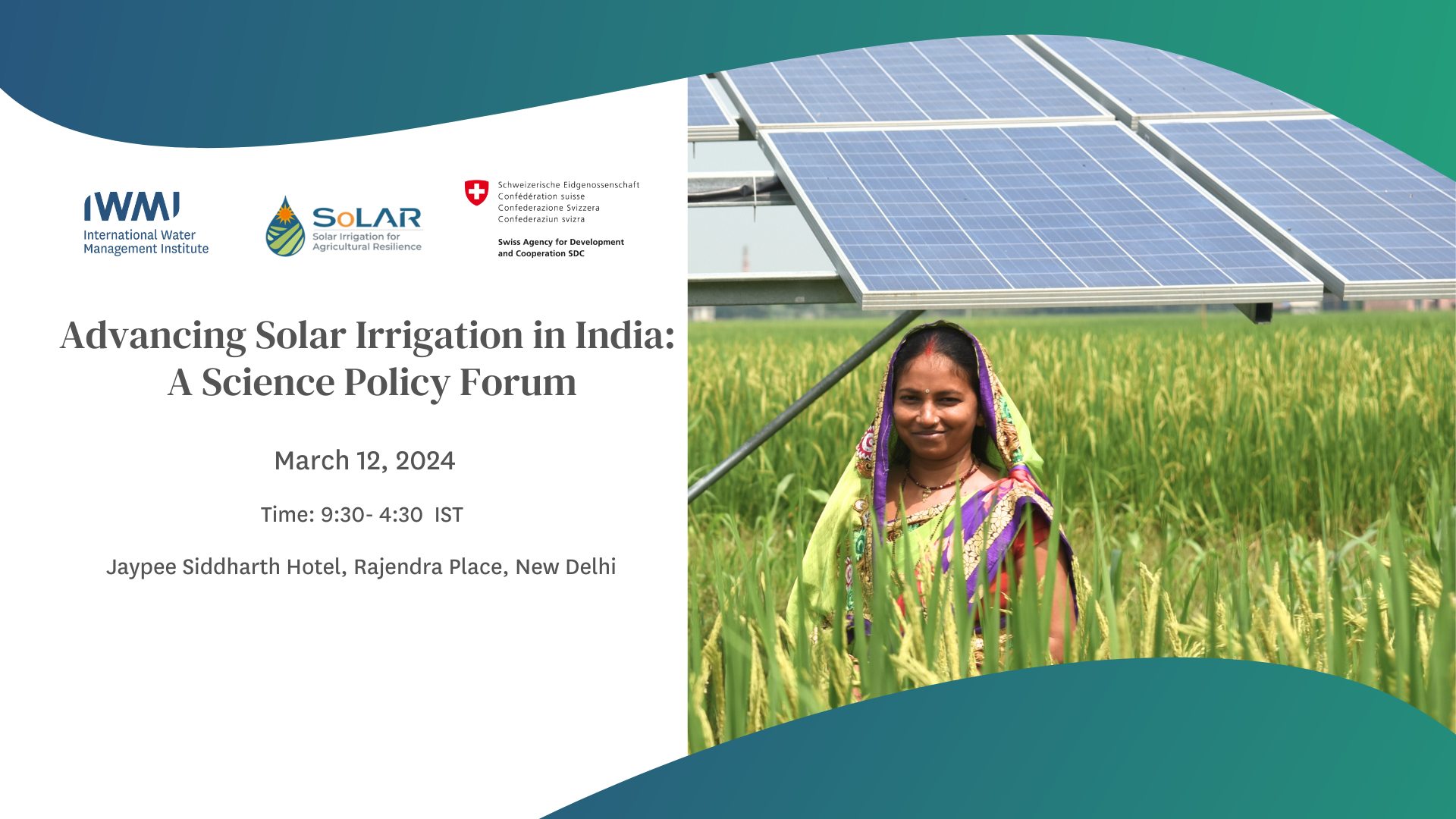 The workshop was attended by 74 participants from across government, civil society, multilateral agencies, farmer groups, etc., and focused on the discourse surrounding the push for solarization which was at the heart of future sustainability. Also, it focused on the criticality of capacity building, for example, in Gujarat alone, over 2,000 farmers have received training and are monitoring various facets such as billing, water usage, etc. The event brought together key stakeholders such as Central Ground Water Board (CGWB), Gujarat Energy Research and Management Institute (GERMI), Ministry of New and Renewable Energy (MNRE), Alternative Energy Promotion Centre (AEPC), United States Agency for International Development (USAID), Gesellschaft fuer Internationale Zusammenarbeit (GIZ), WELL Labs, Indian Council of Agricultural Research (ICAR), Indian Institute of Technology, Indraprastha Institute of Information Technology (IIIT), Gujarat Water Resources Development Corporation Limited (GWRDCL), Ministry of Finance, Food and Agriculture Organization (FAO). There were three panel discussions – “Inclusive Scaling Strategies and Policy Lessons for Solar Irrigation in India”, “Potential of Grid-Connected SIPs for Sustainable Groundwater Solutions” and “Necessity of Awareness and Knowledge for Accessing and Optimizing Solar Irrigation Pump Usage.” Farmers from Haripur village, Rajkot district spoke about how solar pumps have improved their livelihoods and supported conserving both energy and water. India’s abundant solar potential and government schemes like PM KUSUM underscore the importance of solar irrigation in achieving sustainability goals. However, the adoption of SIPs remains limited, highlighting the need for scaling to realize the full potential of solar irrigation in India’s agricultural landscape. The primary aim of this forum was to present and discuss recent insights into
The workshop was attended by 74 participants from across government, civil society, multilateral agencies, farmer groups, etc., and focused on the discourse surrounding the push for solarization which was at the heart of future sustainability. Also, it focused on the criticality of capacity building, for example, in Gujarat alone, over 2,000 farmers have received training and are monitoring various facets such as billing, water usage, etc. The event brought together key stakeholders such as Central Ground Water Board (CGWB), Gujarat Energy Research and Management Institute (GERMI), Ministry of New and Renewable Energy (MNRE), Alternative Energy Promotion Centre (AEPC), United States Agency for International Development (USAID), Gesellschaft fuer Internationale Zusammenarbeit (GIZ), WELL Labs, Indian Council of Agricultural Research (ICAR), Indian Institute of Technology, Indraprastha Institute of Information Technology (IIIT), Gujarat Water Resources Development Corporation Limited (GWRDCL), Ministry of Finance, Food and Agriculture Organization (FAO). There were three panel discussions – “Inclusive Scaling Strategies and Policy Lessons for Solar Irrigation in India”, “Potential of Grid-Connected SIPs for Sustainable Groundwater Solutions” and “Necessity of Awareness and Knowledge for Accessing and Optimizing Solar Irrigation Pump Usage.” Farmers from Haripur village, Rajkot district spoke about how solar pumps have improved their livelihoods and supported conserving both energy and water. India’s abundant solar potential and government schemes like PM KUSUM underscore the importance of solar irrigation in achieving sustainability goals. However, the adoption of SIPs remains limited, highlighting the need for scaling to realize the full potential of solar irrigation in India’s agricultural landscape. The primary aim of this forum was to present and discuss recent insights into
i) challenges associated with the adoption of SIPs by smallholder and women farmers,
ii) their impact on livelihoods and groundwater, and
iii) the need for capacity building interventions to improve the implementation effectiveness of SIP programs. Additionally, the forum engaged in an in-depth discussion about scaling strategies and policy interventions.
Zoom recording
